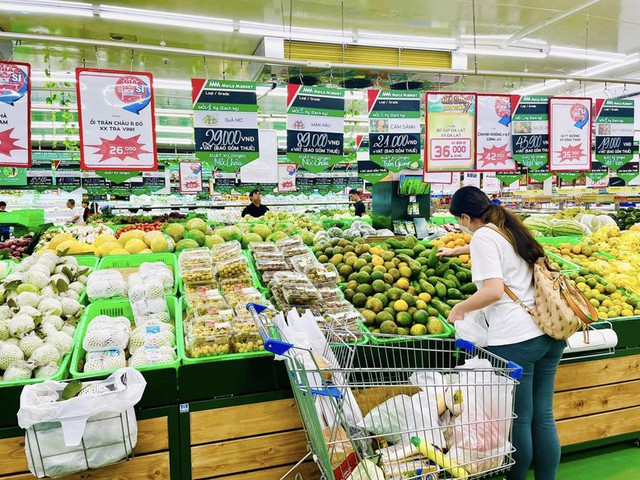Prime Minister directs measures to stimulate domestic consumption, support production
VGP - Prime Minister Pham Minh Chinh on August 27 signed a directive ordering ministries and agencies to implement solutions to stimulate consumption, support production, and develop the domestic market.

The directive's goal is to tackle difficulties in production and business operations, boost consumer demand, and accelerate domestic market development to promote growth, maintain macroeconomic stability, control inflation, and ensure major economic balances.
The Prime Minister asked for addressing bottlenecks in public investment disbursement, credit packages, land issues, and policies to attract social resources for development invesment.
Ministries, agencies, and local authorities are requested to apply digital transformation technologies, artificial intelligence (AI), big data, and blockchain, to boost administrative reforms and simplify procedures.
Additionally, the Government chief ordered subbordinate levels to double efforts to promote domestic trade, connect supply and demand, provide market information, and offer legal advice to small- and medium-sized enterprises.
The Ministry of Industry and Trade is tasked to enhance linkages between production and distribution, improve connections in the commodity value chain, and ensure compliance with quality and food safety regulations.
In the Directive, the Prime Minister emphasized the need to promote activities connecting the supply and demand of goods, distribute One Community One Product (OCOP) products, and bring goods to remote areas and industrial parks to stimulate domestic consumption.
Meanwhile, it is necessary to facilitate the operation of e-commerce platforms in Viet Nam, organize activities to promote regional connectivity in e-commerce, and carry out cross-border e-commerce promotion activities with other countries in the region and large import markets.
Domestic businesses are encouraged to participate in the supply chains of foreign-invested enterprises and global corporations in Viet Nam to enhance consumption of domestically produced commodities.
The MoIT is responsible for supporting businesses in addressing trade defense investigations, origin fraud, and technical barriers related to environment, sustainable development and green transition to promote exports of Viet Nam's key items to major markets like China, the EU, the US, Japan, and South Korea.
Domestic consumer spending accounts for 60-65 percent of GDP, of which household spending is 50-55 percent. Viet Nam has a population of 100 million people, including 20 million middle-class people, which creates a huge demand. It is forecast that by 2026 about 4 million more people will join the middle class.
The World Bank says Viet Nam's per capita income grew by 8.5 percent between 2017 and 2022, the highest in Southeast Asia and almost doubling the world's average growth rate. The middle-class and urban population have increased rapidly in recent years in Viet Nam, leading to a rapid increase in consumption.
These factors are making Viet Nam a high-potential market for retailers and creating an opportunity for domestic businesses to develop brands and expand domestic distribution channels for quality Vietnamese goods, local goods with national brand recognition, and key products of localities.
Viet Nam's total retail sales of consumer goods and services saw a year-on-year increase of 8.7 percent to VND3.6 trillion (US$143.3 million) during January–July, the General Statistics Office (GSO) said.
Last year Viet Nam's retail sales exceeded US$180 billion and are projected to grow steadily in the coming years. In 2023, retail sales of goods and services totaled US$254 million, a year-on-year increase of 9.6 percent./.
